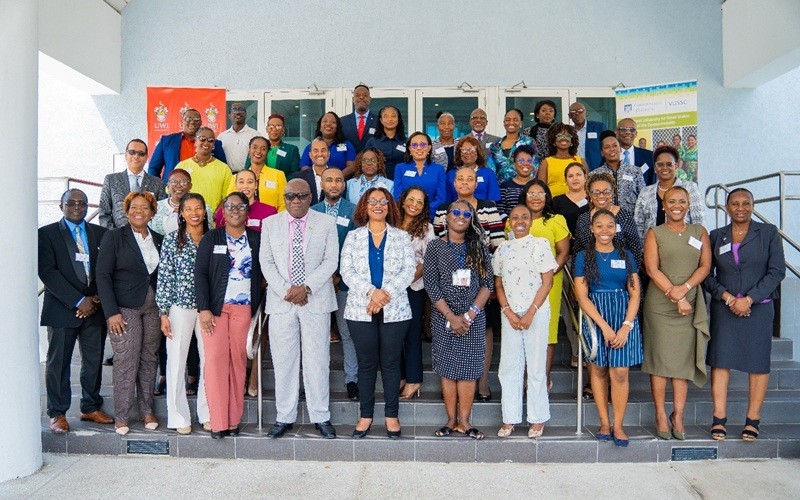
As part of its ongoing effort to advance equitable and flexible learning pathways across the Commonwealth, the Commonwealth of Learning (COL), in partnership with The University of the West Indies (UWI), convened a high-level regional consultation on micro-credentials and credit transfer in Kingston, Jamaica. Hosted at UWI Mona Campus, the two-day workshop brought together senior officials, institutional leaders, and accreditation stakeholders from twelve countries across the Caribbean and Canada to contribute to the development of a Commonwealth-wide Micro-Credentials Credit Transfer Framework (M-CCTF).
Held under the theme “Developing a Commonwealth Credit Transfer Framework: Micro-credentials in a Digital Age”, this was one of five regional consultations designed to ensure the framework reflects diverse regional perspectives and national priorities across the Commonwealth.
Participants included representatives throughout the Caribbean, including Permanent Secretaries, Chief Education Officers, university executives, accreditation leaders, and regional partners such as the Caribbean Examinations Council (CXC) and the Caribbean Community (CARICOM).
Opening the meeting with a virtual message, Professor Peter Scott, President and CEO of COL, emphasised micro-credentials’ value as part of a more agile and accessible approach to education and workforce readiness.
Dr Tamika Benjamin, Assistant Chief Education Officer, Tertiary Unit, Ministry of Education, Skills, Youth and Information, speaking on behalf of the Honourable Minister Senator Dr Dana Morris Dixon, affirmed Jamaica’s strong commitment to the initiative, “The development of a Commonwealth Micro-Credentials Credit Transfer Framework is timely and necessary. It aligns with Jamaica’s strategic goals of expanding access to flexible learning pathways and improving employability. We see it as a regional imperative that will transform how education systems respond to labour market realities.”
The sessions featured deep dives into regional readiness, governance models, digital verification platforms, and institutional practices, all toward developing the Commonwealth Micro-Credentials Credit Transfer Framework (M-CCTF).
A highlight of the workshop was a virtual presentation from Mr Chad Doerksen, Director of Post-Secondary Policy, Ministry of Post-Secondary and Future Skills, British Columbia, Canada. He shared insights from British Columbia’s provincial micro-credential framework, including principles for credit portability, labour market alignment, and coordinated implementation, offering valuable models for adaptation in Caribbean contexts.
Reflecting on the importance of the gathering, Dr Schontal Moore, COL’s Team Lead for the Caribbean Meeting, remarked, “This workshop has proven that small states can lead big innovations. Through regional cooperation, we are co-creating a system that responds to learners, industries, and national development priorities.”
The outcomes of this workshop will inform the final draft of the M-CCTF, to be presented at the upcoming CARICOM Council for Human and Social Development (COHSOD).


